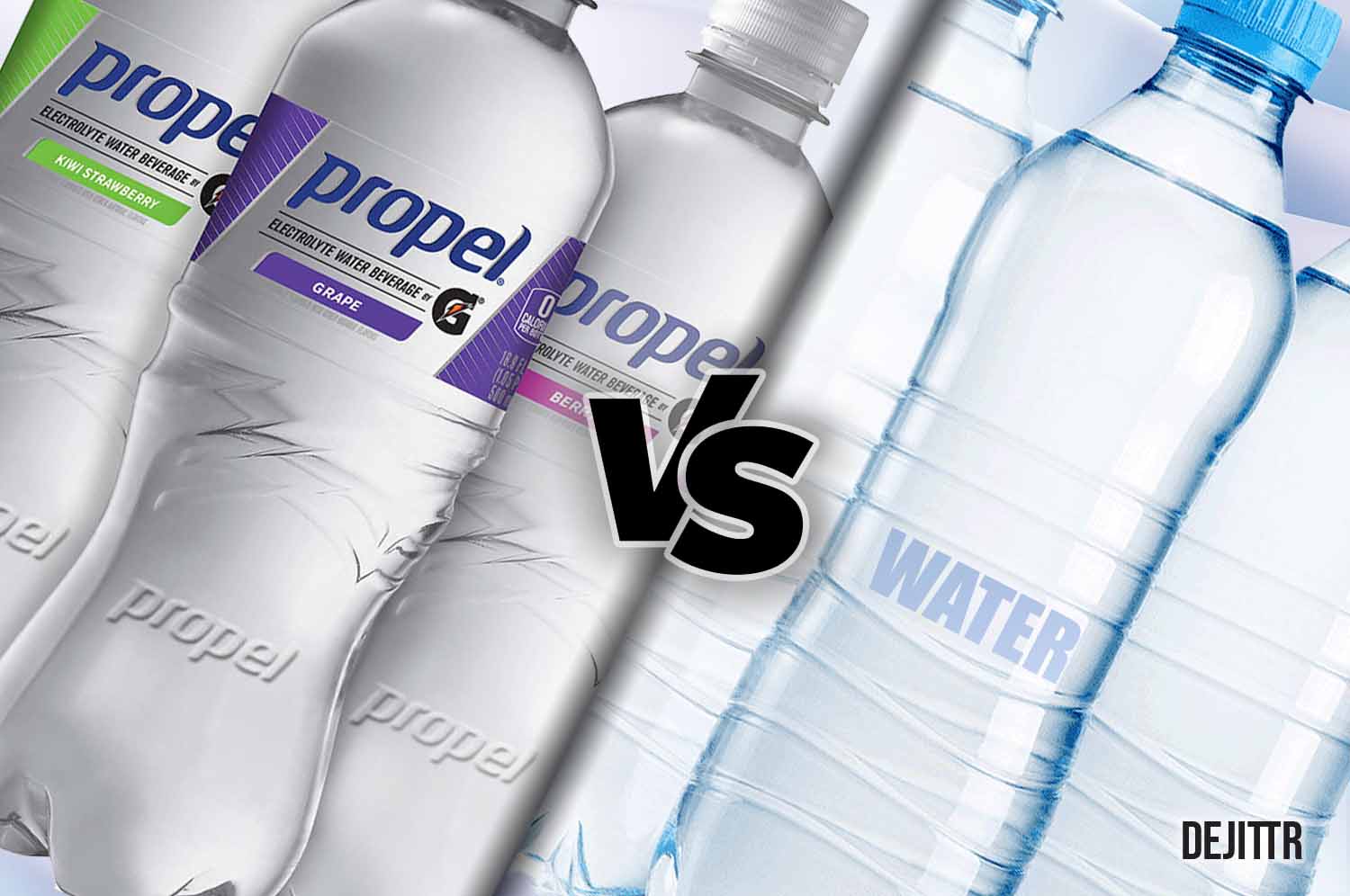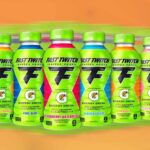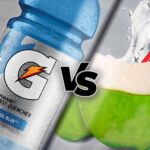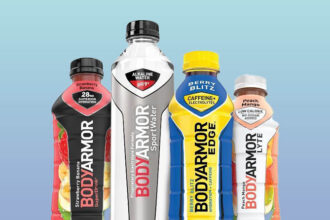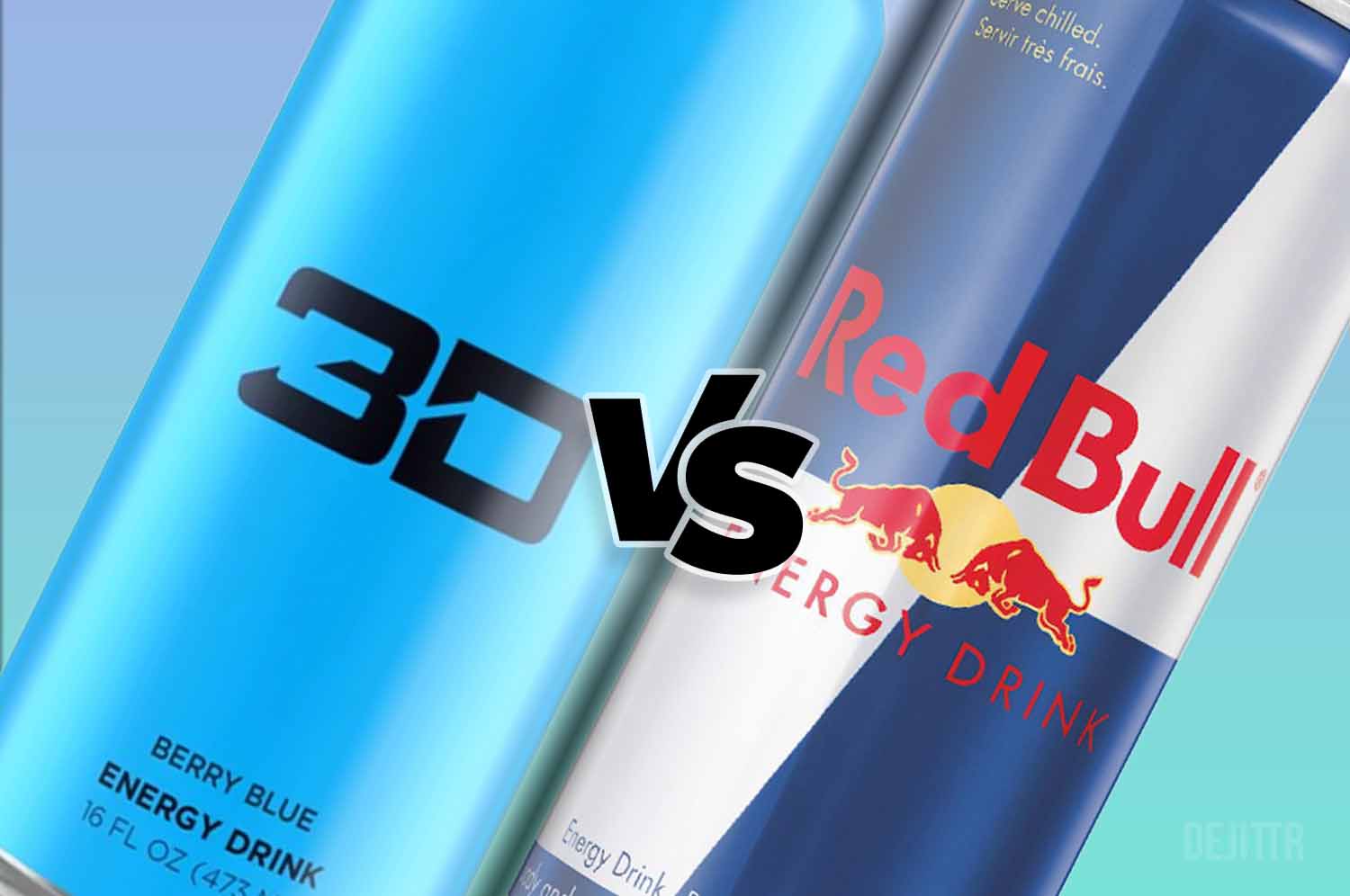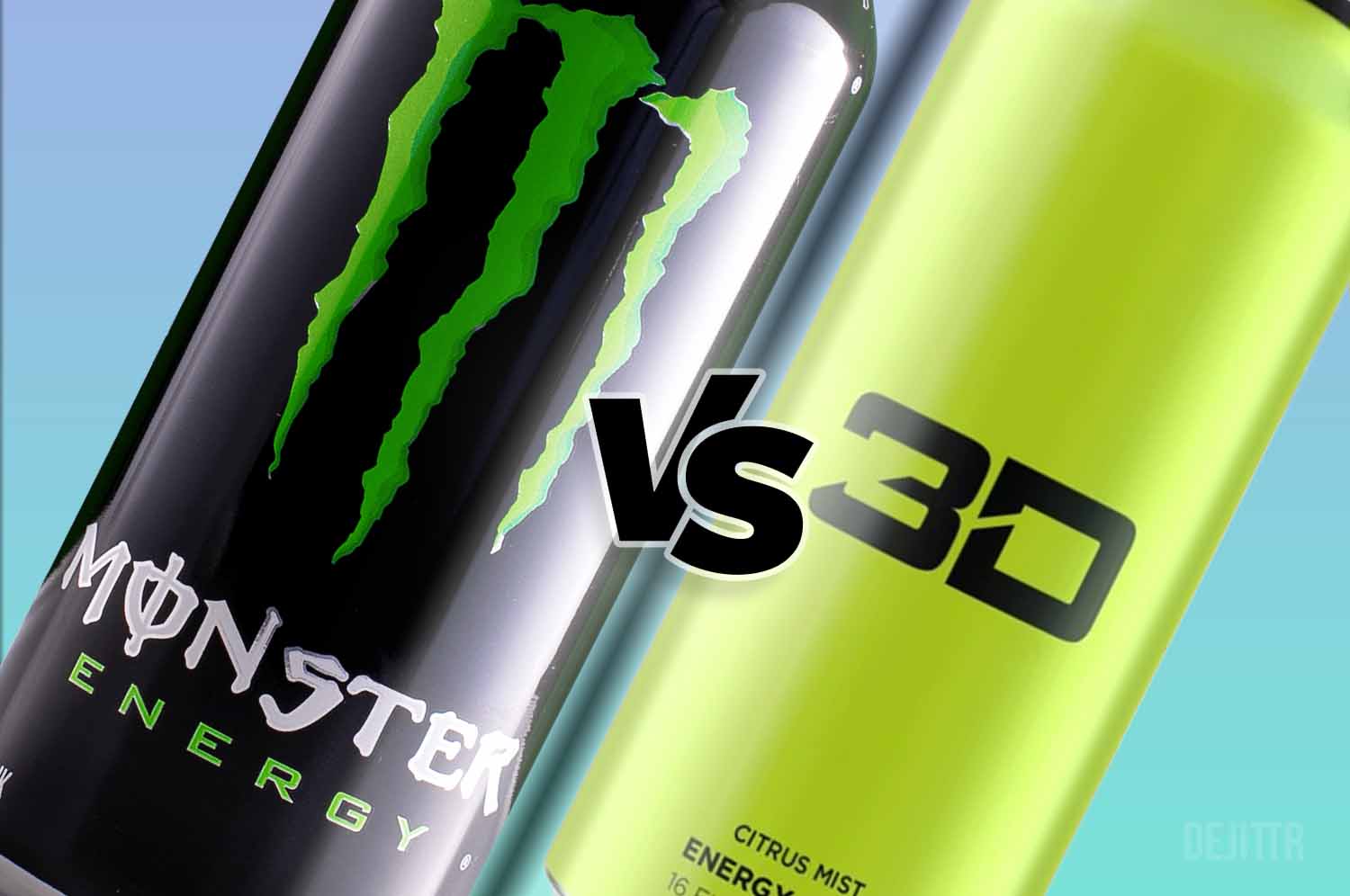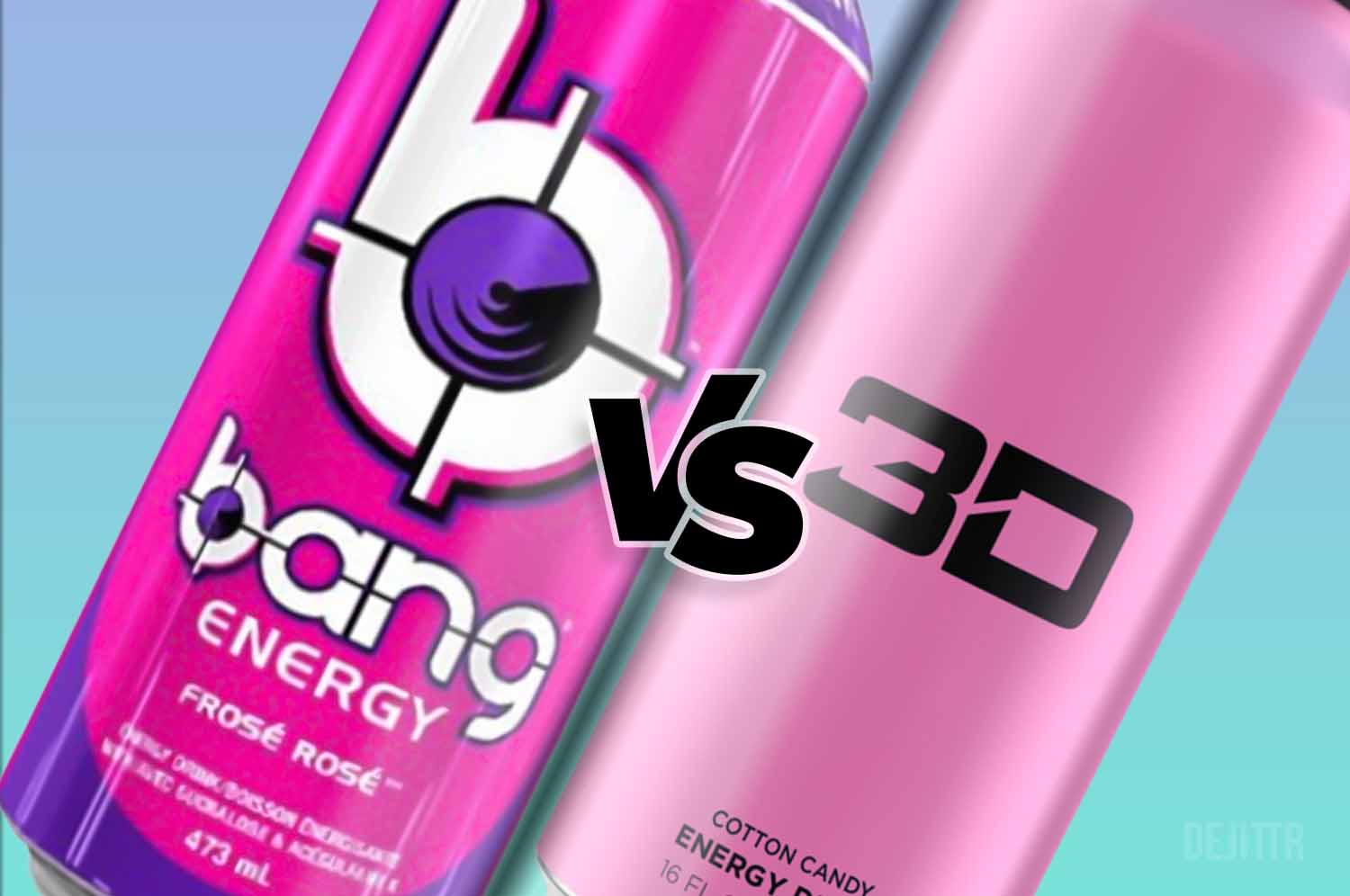As the temperature increases or after an intense workout session, we start to look for hydration drinks that replenish our systems. And that’s when propel water comes to mind. But wait, what’s the difference between it and water?
Key Takeaways:
The main difference between Propel Water and water is that Propel Water contains antioxidants, vitamins, and electrolytes. However, it also contains artificial sweeteners, so using it is good only if you are doing strenuous activities; otherwise, water is good enough.
Keep reading to find out how Propel Water stacks up against regular water and which is better for you in this guide.
Is Propel Water Actual Water?
Propel Water is a vitamin and antioxidant-enhanced non-carbonated hydration drink. It can assist athletes in replacing fluids and electrolytes lost via sweat or strenuous activity. It was developed as a healthy alternative to sugary and high-calorie sports drinks.
The ingredient in Propel Water are as follows:
- Water
- Citric acid
- Natural flavor
- Sodium hexametaphosphate
- Sodium Citrate
- Potassium Citrate
- Vitamin E acetate
- Potassium sorbate
- Ascorbic acid (vitamin C)
- Sucralose
- Calcium pantothenate (vitamin B5)
- Pyridoxine hydrochloride (vitamin B6)
- Acesulfame potassium
- Niacinamide (vitamin B3)
- Calcium disodium EDTA
How Do Propel Water And Water Compare Nutritionally?
The serving size of Propel Water is usually 20 fl oz. (591 ml).
| Propel Water Nutrition | Quantity |
| Calories | 5 |
| Sodium | 270 mg |
| Carbohydrates | 0 g |
| Total sugar | 0 g |
| Protein | 0 g |
| Potassium | 70 mg |
| Zinc | 3.9 mg |
| Vitamin E | 3 mg |
| Vitamin C | 108 mg |
| Vitamin B6 | 1.2 mg |
| Niacin | 12 mg |
| Pantothenic Acid | 6 mg |
On the other hand, we have water which is chemically called H2O. Here are the nutrition facts of water based on the portion size of 1 serving – 8 fl oz (237 g).
| Water Nutrition: | Quantity: |
| Calories | 0 |
| Fat | 0 g |
| Carbohydrates | 0 g |
| Sugar | 0 g |
| Sodium | 9.48 mg |
| Potassium | 0 mg |
| Zinc | 0.024 mg |
| Protein | 0 g |
| Calcium | 7.11 mg |
| Magnesium | 2.37 mg |
| Copper | 0.024 mg |
Depending on its origin and whether or not it has been processed via a filtration system or subjected to a distillation process, water may include minerals like calcium, fluoride, iron, potassium, or salt.
It is essential to stay hydrated in warm weather because it helps the body maintain a normal temperature.
Comparing Propel Water and Water nutritionally, the following things are observed:
- Propel Water contains calories, while water is zero calories.
- Propel Water contains vitamins like vitamin E, C, and others not present in water.
- Also, quantities of minerals like sodium and potassium are more in Propel Water than in water.
Is Propel Water Healthier Than Water?
Nutritionally speaking, Propel Water outperforms water. However, the artificial sweeteners sucralose and acesulfame potassium found in Propel Water are the beverage’s main downside compared to water.
Typically, sugar substitutes made from synthetic ingredients are known as artificial sweeteners. However, they can also be sourced from ingredients like herbs or sugar cane. Due to their extreme sweetness compared to sugar, artificial sweeteners have been named “intense sweeteners.”
Highly Recommended Read:
Have you ever noticed how good Starbucks water taste? Is the water from the tap, or is it filtered? We answer all these questions and more in our latest post: Why Does Starbucks Water Taste So Good?
Because they have almost no caloric impact, artificial sweeteners can be a tempting substitute for sugar. Additionally, a small amount of artificial sweetener can produce the same level of sweetness as a much larger amount of sugar.
That said, artificial sweeteners are known for health concerns.
For instance, animal studies have demonstrated that artificial sweeteners lead to a variety of adverse health effects, including but not limited to obesity, tumor development in the brain, and cancer in the bladder.
A study found a direct correlation between excess intake of artificial sweeteners and a higher risk of cardiovascular disease.
That said, no artificial sweetener currently on the market in the United States has been linked to any increase in cancer or other major health concerns, as reported by the National Cancer Institute and other health organizations (source)
It has been shown in a large body of research that artificial sweeteners, even in small amounts, are safe for pregnant women to consume.
However, since questions arise about the health effects of artificial sweeteners, we would still consider it a drawback of Propel Water. Moreover, although FDA approved, Propel Water does contain preservatives.
Final Verdict – Which is Better For You?
Overall, Propel Water is a much healthier option to try out than most other sports drinks on the market. It has no sugar or caffeine and helps replenish your body with electrolytes lost during workouts.
But unless you’re a professional athlete or someone who regularly engages in strenuous physical activities, Propel Water won’t be too beneficial for you.
Highly active people lose electrolytes in the same way that athletes do, through sweat. So electrolytes are added to Propel to compensate for what is lost via sweat. So in such a case, you can take Propel Water.
But if you don’t sweat a lot, you’re not losing many electrolytes anyhow, so Propel Water is unnecessary and provides no additional benefits over plain water in such a scenario. The additional artificial sweeteners in Propel Water are, in turn, questionable in terms of health.
For further reading, we highly recommend you read our deep analysis on how good propel Water is for dehydration.


